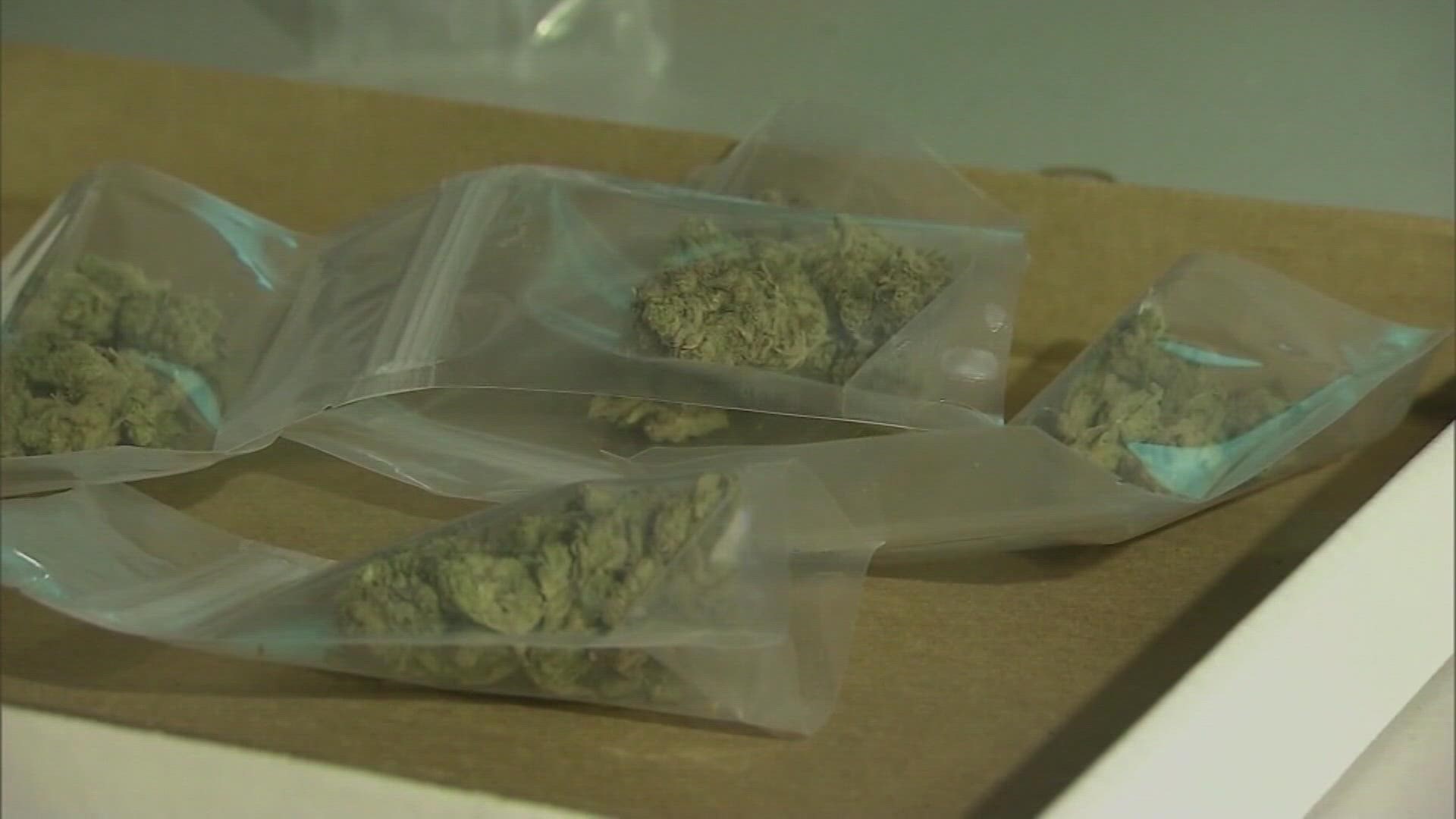HARKER HEIGHTS, Texas — The City Manager of Harker Heights wrote an open letter to the public Tuesday where he explained how city council "had no choice but to repeal" Proposition A, an ordinance that would have decriminalized low-levels of marijuana possession.
In the letter, David Mitchell says the leading reason for their decision: It's not up to city councilmembers to govern marijuana possession, but instead, the Texas Legislature.
"The City Council and staff understand that marijuana laws have been a hot topic across the nation stirring emotion among those on both sides of the issue," he wrote. "Laws relating to marijuana possession and the enforcement of State laws are made by the Texas Legislature... The Texas Legislature also sets the laws requiring police officers to enforce the law," Mitchell added.
During the Nov. 8 election, 64% of voters passed Proposition A in Harker Heights, which would have required Harker Heights officers to issue tickets instead of arrests for less than 4 ounces of marijuana possession.
However, on Nov. 22, city councilmembers repealed Prop A with a 4-1 vote, which left many voters feeling like their voice doesn't matter.
Many advocates, including Ground Game of Texas, the organization that helped put the ordinance on the ballot, argue city council needs to follow the will of the voters.
Ground Game founder Julie Oliver held a press conference to address what her organization is doing to make sure voters get what they voted for.
She is asking Harker Heights voters to sign a referendum that will then be turned in to the city council. Once each signature is verified by the city clerk, Prop A will immediately be the law of Harker Heights.
"We need a total of 350 signatures from Harker Heights voters. We've already gotten more than half of the votes so far. We want to put in place what the voters wanted weeks ago," Oliver explained.
However, Mitchell says due to state law, "the council had no choice but to repeal the ordinance as it was inconsistent with state law."
"A city ordinance cannot override State law," he wrote. "Texas Local Government Code 370.003 says 'the governing body of a municipality... may not adopt a policy under which the entity will not full enforce laws relating to drugs."
At the press conference, Harker Heights resident Howard Arey also mentioned how he thinks passing Prop A will greatly impact the local economy for the worse.
"I am greatly concerned that if this law is put into effect, the state legislature is going to say we want to ignore the laws of the state. Then they could chose to not give out city state funding. It's a really bad position for the city to take. The rule of law really needs to take precedence here." Arey explained.
Opponents of the ordinance argue Proposition A also hinders a police officer from doing their job and that they may be disciplined for doing so.
"Within this ordinance, it requires that all officers actually be disciplined if they act in accordance with their obligation of state law, and that violates this ordinance. I know of no authority, even anywhere that allows a city to punish a police officer for following state law," Harker Heights City Attorney Charles Olsen told 6 News in a previous story.
Mitchell wrote that even if the ordinance wasn't repealed, marijuana laws would still be enforced in Harker Heights by county, state and federal law enforcement agencies.
"For those with interest in changing laws relating to marijuana, the Texas Legislature is the appropriate forum to seek those changes," he wrote. "... The City of Harker Heights has no authority to enact an ordinance contrary to state law."
The City of Killeen plans to revisit a similar ordinance that passed with around 70% of the vote during the midterm elections during its meeting on Dec. 6. City council voted to put a pause on it the same night Harker Heights repealed Proposition A.

